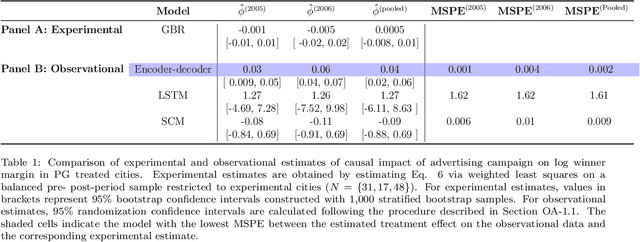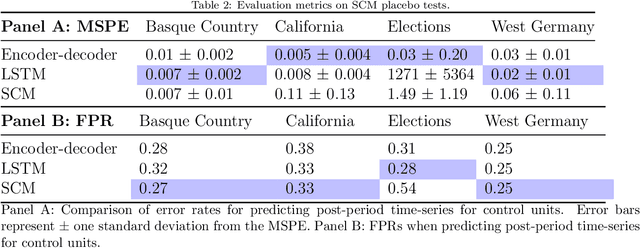RNN-based counterfactual time-series prediction
Paper and Code
May 11, 2018

This paper proposes an alternative to the synthetic control method (SCM) for estimating the effect of a policy intervention on an outcome over time. Recurrent neural networks (RNNs) are used to predict counterfactual time-series of treated unit outcomes using only the outcomes of control units as inputs. Unlike SCM, the proposed method does not rely on pre-intervention covariates, allows for nonconvex combinations of control units, can handle multiple treated units, and can share model parameters across time-steps. RNNs outperform SCM in terms of recovering experimental estimates from a field experiment extended to a time-series observational setting. In placebo tests run on three different benchmark datasets, RNNs are more accurate than SCM in predicting the post-intervention time-series of control units, while yielding a comparable proportion of false positives. The proposed method contributes to a new literature that uses machine learning techniques for data-driven counterfactual prediction.
 Add to Chrome
Add to Chrome Add to Firefox
Add to Firefox Add to Edge
Add to Edge